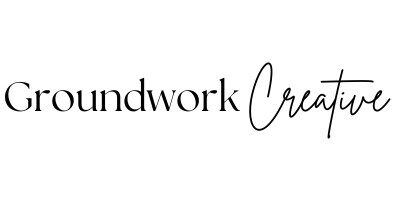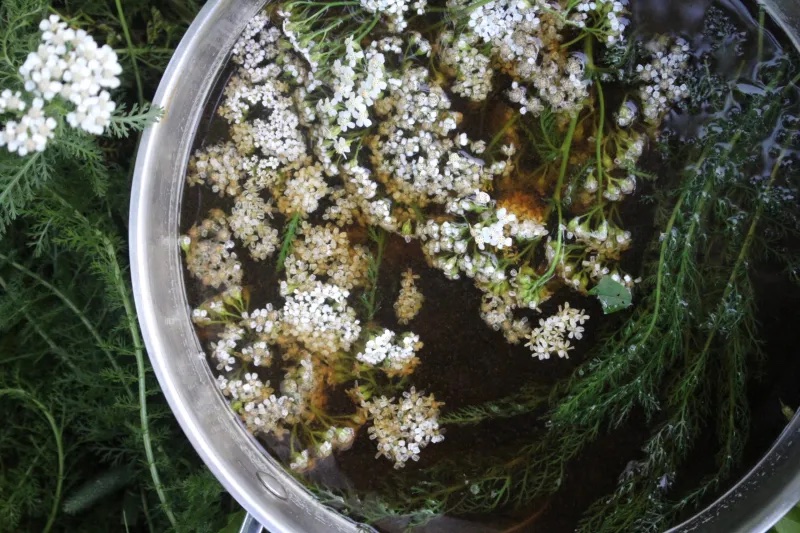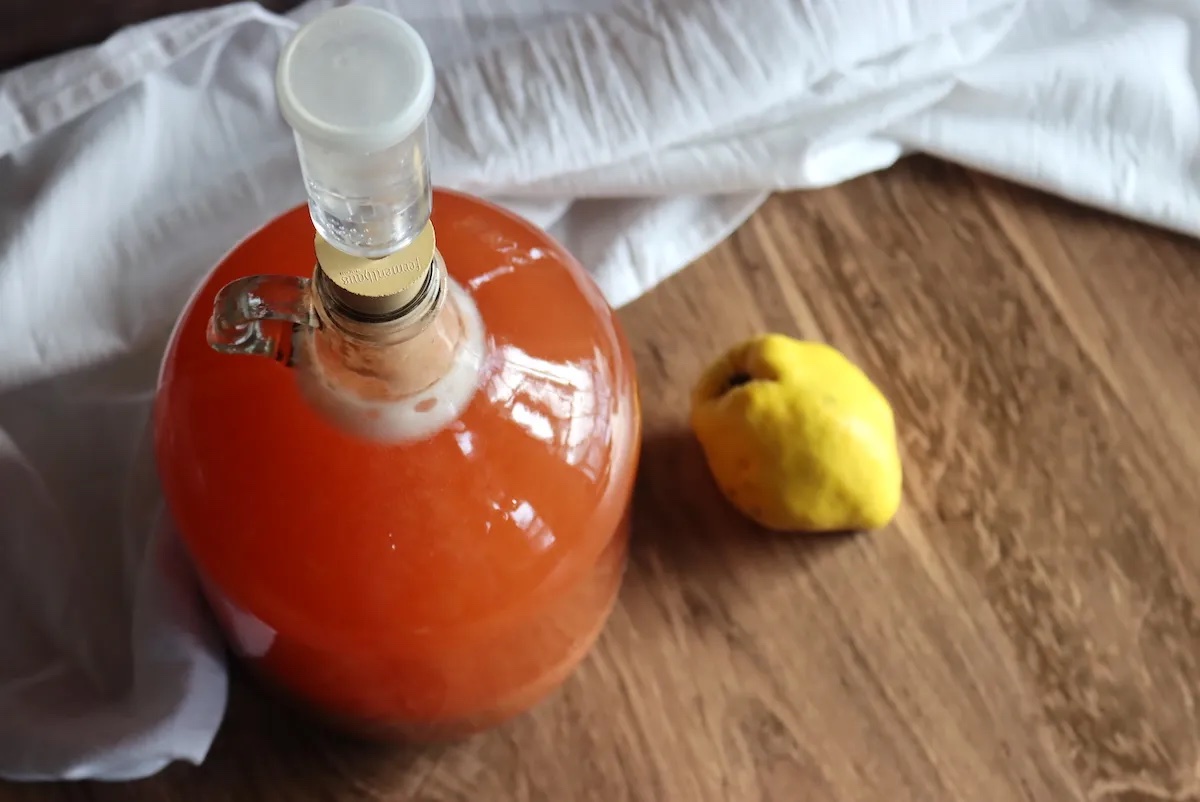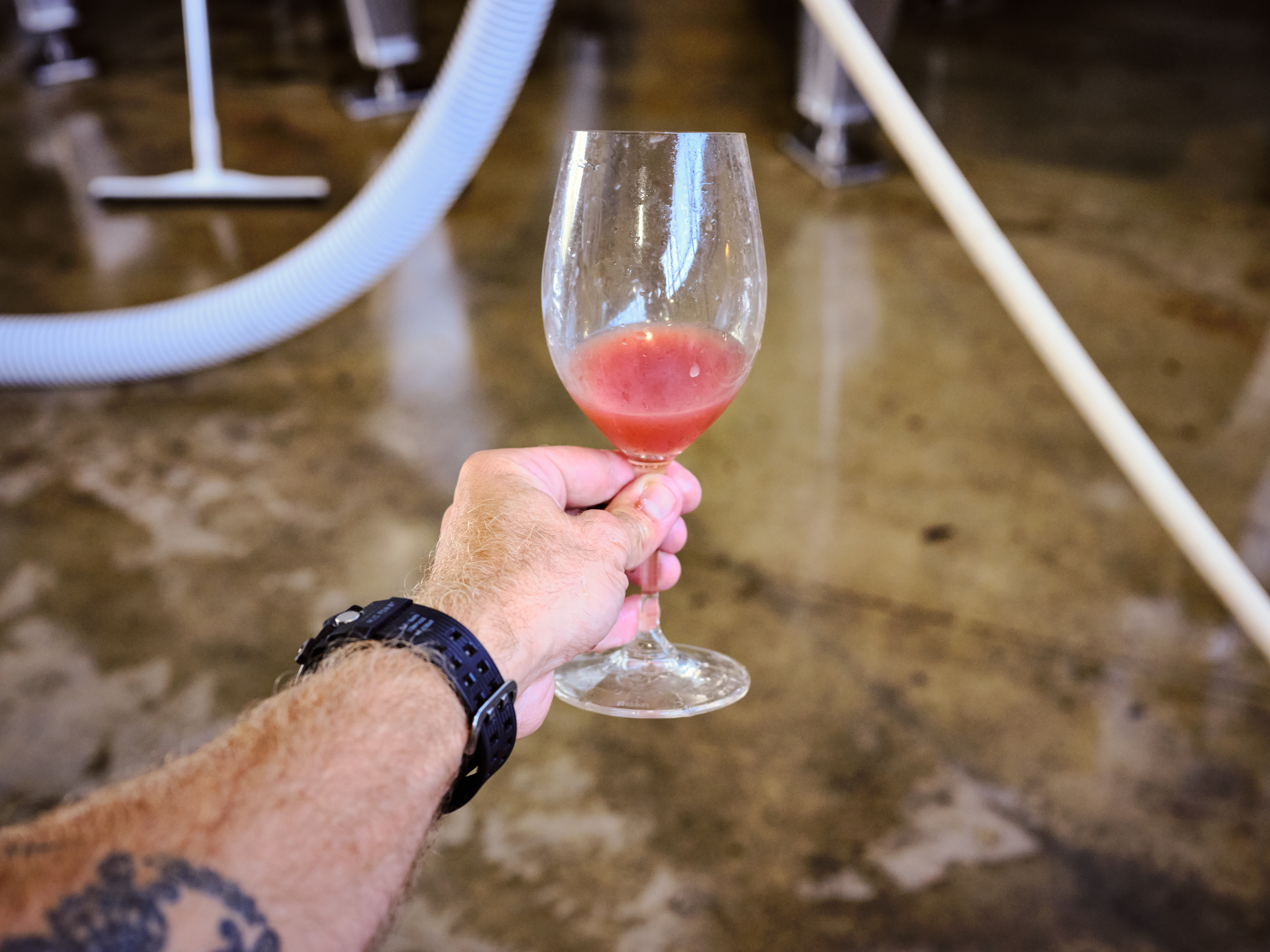Let's be real, herbal wine has a special ring to it... It is almost impossible to not get giddy thinking about it (if you are a wine lover, of course).
Now, how many times have you drank a glass, or two, of wine without thinking about it? You come home maybe exhausted from the day, pour a glass, then move forward with mundane tasks trying to release the grip of the day...
For many people, this is the reality.
However, think about the last moment outside you had that was really meaningful, maybe a hike, skiing, surfing. How beautiful was it, really??
What if I told you, you could create that nature-loving moment without having to climb that mountain or adventure to the middle of the ocean...
THAT is herbal wine.
Believe it or not, herbal wine is the nature-loving red headed step child of the wine family. Blending earthy notes (and real benefits) with the raw beauty of wine itself.
I will show you why you ought to be obsessed with herbal wine, why you must start thinking about crafting it ASAP, and recipes and photos for inspiration and first steps.
This post is all about herbal wine.
The Obsession of Herbal Wine
Fun fact, before beer was only yeast, malt, water, and hops, brewers would use herbs and spices to build the flavor profile they desired.
Same goes for mead makers, they used fruits and herbs to build these lovely concoctions of fermented drinks.
So, exploring herbal wines (and even herbal beers), connects us back to our ancestors and the raw creation that Mother Nature intended.
RELATED POST: 5 Timeless Techniques to Make Wine Like a Goddess
Your Wine, Your Rules
Unlike commercial style wine, herbal wine allows the home winemaker to really choose the path they want for their wines. You don't have to make it complicated if you don't want to!
In commercial grape wineries, the grape has to do all the work: the sugars, the acids, tannins, etc.
In herbal wine making, it is the opposite. You can choose fruit, if you want. You can choose an array of herbs, if you want. It is your wine, your rules.
RELATED POST: 5 Simple Must-Do Things to Kickstart Your FIRST Fermentation Project
Let's break down the elements of the winemaking process you get to choose:
#1. Choose your sugar
More than likely, if you are just doing an herbal wine, without fruit, you will need to add a fermentable sugar source so the yeast have something to eat to turn into alcohol.
You can choose: organic local honey, organic cane sugar, or organic brown sugar.
#2. Choose your herbs
The most intriguing part (in my opinion), which herbs to choose from!
Visit Mountain Rose Herbs for the highest quality organic herbs that you can purchase dried, perfect for herbal wines!
Now, I am *not* an herbalist. Let's get that clear! Though, I do practice herbalism on my own and enjoy integrating it into my beers and wines.
The ULTIMATE resource for starting your herbal journey is this post...
Herbalism for Beginners | Where to Start & How to Progress
Herbalism for beginners has immense amount of resources and information on herbs to choose from, where to find them, etc.
C'mon, what nature girly wouldn't love to add herbs into a glass of wine? Sounds too good to be true!
Herbs to think about:
- Yarrow (bittering)
- Mugwort (bittering)
- Lemon Balm
- Echinacea
- Chamomile
- Lavender
- Nettle
- Rose Petals
- Elderberry
Man, the list goes on!
PRO TIP: Adding "bittering" herbs will help offset the sweetness from the honey or added sugar. Bittering herbs include yarrow and mugwort. Mugwort being the most bitter!
Plus, do additional research into the benefits of each herb to really connect with the herb and in the end, connect deeper with your wine.
#3. Choose your batch size
A GREAT aspect to making herbal wines, you can choose if you want to make 5 or 10 gallons or you can make a simple one-liter!
Traditionally with home winemaking, you make 5 gallons. But, honestly... That is a LOT of wine! That is 25 bottles of wine...
25 bottles of wine is not only a commitment, but a JOB! So, let's dive into what other batch sizes you can do.
Because I get it, you are a busy lady who wants to create but without the craziness of 25 bottles, ensuring they are sanitized, running all the tests, etc.
There is still an option for you:
Start with a micro batch.
I could yell that from the rooftops.
Even starting with a simple 1-quart micro batch can give you the confidence to start. Very small investment, little time, and a whoooolllee lot of outdoor creation.
#4. Choose your fermentation length & aging
Wine takes a lot longer to ferment than beer. It also loves to be aged! The aging time depends on the wine itself, but it is at the hands of the winemaker.
Wine generally takes 2 weeks to mostly ferment. Then, it can be in secondary fermentation for an additional 2-3 months! Some people even leave it for almost a year before bottling.
Again, the beauty of the red-headed step child, herbal wine, is you can do whatever you want. Especially if you are doing a micro batch.
#5. Choose your fermentation style
Ok, THIS is my favorite part! Every nature-loving girly pop will adore this section because it is everything Mother Nature intended...
Fermentation happens in one way: yeast eat sugars and the byproduct is alcohol.
But...
What if I told you that you can use natural yeasts that are living all around you RIGHT NOW?
You can *literally* harness the power of naturally occurring yeast to make herbal wine.
You are probably wondering what the heck that even means. But, have you ever touched the skin of ginger or turmeric? Maybe an apple? Well, you are touching a natural yeast population.
Yes, it's true. It's crazy, but true.
Here are two options to ferment your herbal wine:
- Commercial dried yeast packets
- Natural yeast starter
RELATED POST: How to Make Your Own Yeast Starter in 8 Easy Steps
I could pop onto my soap box and go OFF about wild yeast, the beauty of nature and all that it provides, and how fermentation is a gift from the stars.
But, I will spare your time.
Instead, here are other posts you could be interested in:
✓ Your NEW Guide to Beautiful Natural Wine | Learn Natural Fermentation
✓ Explore Exotic Tastes with Wild Fermented Wine
✓ How to Ferment Unique Wine | Blend Herbalism, Fermentation, & Artistry
Using Local Elements
Another one of my favorite topics (but, let's be real, all of this is my favorite).
I gained a HUGE appreciation for crafting wines and beer from our local terroir from my favorite author, Pascal Baudar.
Not only does he have the BEST book on wildcrafting fermentation, but he dives into a whole array of different topics on how to use your local environment for food and drinks.
Talk about loving nature! He teaches you how to take a hike and come back to create a wine that represents the environment (it's mind blowing).
Get the book JUST for the photo inspiration so you can sit on your couch and "oooo" and "awww" at these unreal photos of herbal wines made from his backyard.
Starting Small
I totally get it, winemaking can feel overwhelming. Like I mentioned before, start with a micro batch.
RELATED POST: Steal These Rose Wine Ingredients for a Romantic Homemade Wine
Let's dive into the equipment and a few recipes to get you started making herbal wine. It can be simplified and small! Then, if you enjoy it (which you will) then you can dive deeper.
Start with a micro batch.
Below is the equipment to get you started with a micro batch! A simple quart fermenter and the essentials for making wine.
In the Amazon cart is also wine tannin, wine pectin, and acid blend. These are simple to use (hint: it's one teaspoon each), and they add so much benefits to homemade wine.
Check out best tips on using these here!
Share with Your Community
Let's drink to celebrate. An issue that tends to surface is drinking for the wrong reasons. Which can lead to abuse, deterioration, and overall negative side effects.
So, let's change that narrative.
Let's drink to celebrate, and when you create your own wines that is the PERFECT reason to celebrate. You put hard work into the wines, stayed with it for the many weeks it took to ferment, and now you get to enjoy it.
But, don't enjoy it all alone. Bring your closest friends in with you, allow them to experience your creation. It is a great talking point and can deliver amazing conversations if we allow it to.
Overall, herbal wine is easy to obsess over. Even if you are just staring at photos in a book... It is dreamy, elegant, and paints a beautiful picture of how we can tap into our Goddess to create pure magic!
Let's be obsessed together!!





